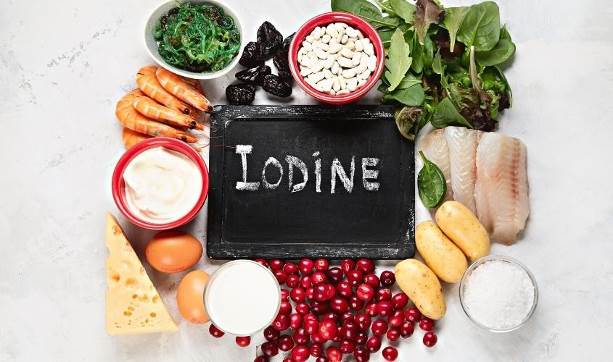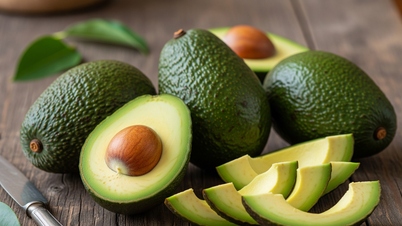On November 7, the Ministry of Health said that the arguments lacking scientific basis and evidence put forward by some individuals and businesses in recent times have caused public confusion, negatively affected the health sector's efforts in preventing and combating iodine deficiency disorders, and are contrary to the Party's guidelines and policies and the State's laws.
The Ministry of Health affirms that there are no concerns regarding the public's use of iodized salt, including iodized salt used in households and in food processing. In Vietnam, there has never been a case of people having excess iodine.
Associate Professor, Dr. Truong Tuyet Mai, Deputy Director of the National Institute of Nutrition, said that according to the 2021 report of the Global Network for the Prevention of Iodine Deficiency Disorders, Vietnam is still among the remaining 26 countries in the world with iodine deficiency.
"Micronutrient deficiency is a 'hidden hunger' because the current diet of Vietnamese people does not meet the needs of essential micronutrients. Iodine deficiency in Vietnam is so serious that it has public health implications," said the Deputy Director of the National Institute of Nutrition.
According to the report of the Central Endocrinology Hospital and the National Institute of Nutrition, currently, Vietnam has not recorded any cases of patients with excess iodine. The results of the 2019-2020 Nutrition Survey showed that in all groups of subjects, the median urinary iodine level was lower than recommended. The rate of people with urinary iodine concentration exceeding the threshold of 300 ppm was 0%.
"With this result, it is confirmed that the Vietnamese population still does not reach the recommended daily iodine intake. Up to now, there has been no medical literature mentioning the program of using iodized salt for the whole population (from 1994 to present) leading to consequences of thyroid disease," the Ministry of Health affirmed.

Iodine deficiency or high iodine intake causing thyroid diseases is also classified as a consequence of iodine deficiency, this is the classification of the World Health Organization (WHO). In areas of severe iodine deficiency, there will be an increased rate of hyperthyroidism in autoimmune thyroid nodules and in people with subclinical hyperthyroidism when iodine supplementation is performed.
According to WHO, after 5-10 years of regular iodine supplementation, the incidence of hyperthyroidism will decrease, corresponding to areas without iodine deficiency. Hyperthyroidism is an autoimmune disease, mainly treated with synthetic antithyroid drugs. If medical treatment fails or immune factors remain high after a long period of medical treatment, surgery or radiation therapy should be chosen.
In Vietnam, according to Globocan 2020 data, as well as the world situation, thyroid cancer ranks 10th in the number of new cases, 6th in women in terms of new incidence rate among all types of cancer, 4 times higher than in men. The cause of cancer increase is due to the development of technology and awareness of people for early detection. There is no scientific document confirming that excess iodine causes thyroid cancer.
Previously, the Association and Food Association had opinions and recommendations regarding the use of iodine-fortified salt that changes color, taste or has negative effects on consumers' health. However, the Ministry of Health has not received any scientific evidence from businesses regarding the use of iodine-fortified salt that changes color, taste or has negative effects on consumers' health.
According to the Ministry of Health, the previous inaccurate and unscientific recommendations of enterprises were obstacles, leading to an 8-year delay in the implementation of Decree No. 09/2016/ND-CP.
The Ministry of Health was assigned by the Government to research, amend and supplement Decree No. 09/2016/ND-CP in the direction of only encouraging food processing enterprises to use iodized salt.
Implementing the Government's direction, the Ministry of Health has conducted research and the results have shown twice that the current iodine deficiency status of the population is still at the community level. Therefore, WHO, UNICEF, the Global Iodine Network, HealthBridge Canada, the Ministry of Health and a number of health protection experts strongly recommend that the Government maintain the mandatory regulations on micronutrient fortification of food in Decree 09/2016-ND-CP.
According to the Ministry of Health, the requirement to fortify food with micronutrients and to require iodine-fortified salt for food processing is consistent with WHO recommendations and international experience in preventing and combating micronutrient deficiencies.
Source: https://cand.com.vn/y-te/bo-y-te-bac-bo-thong-tin-su-dung-muoi-i-ot-co-nguy-co-bi-cuong-giap-i749633/



![[Photo] Prime Minister Pham Minh Chinh chairs the first meeting of the Central Steering Committee on housing policy and real estate market](https://vphoto.vietnam.vn/thumb/1200x675/vietnam/resource/IMAGE/2025/9/22/c0f42b88c6284975b4bcfcf5b17656e7)

























![[Photo] General Secretary To Lam presents the First Class Labor Medal to the Vietnam National Energy and Industry Group](https://vphoto.vietnam.vn/thumb/1200x675/vietnam/resource/IMAGE/2025/9/21/0ad2d50e1c274a55a3736500c5f262e5)
































































Comment (0)